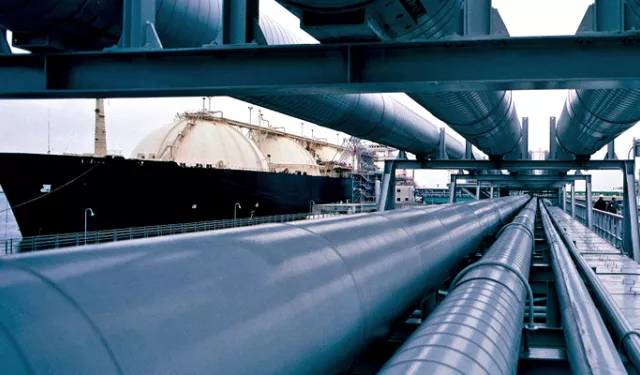Egypt is pressing ahead with a $400 million pipeline to import Israeli gas, even as domestic electricity dues rise and production declines. The government will fund the line on its territory, while Israel’s NewMed Energy will connect it on its side in late 2025.
According to Asharq Bloomberg, the Egyptian government will shoulder the full cost of the pipeline within its borders. Israel’s NewMed Energy, a key partner in the Leviathan gas field, will extend and connect the line on its side later this year.
The project is meant to handle larger volumes of Israeli gas under the new supply agreement, An unnamed Egyptian government official told Asharq Bloomberg. Another official said state-owned GASCO is expected to carry out the work once engineering plans are completed.
Announced earlier this month, the deal was hailed by NewMed Energy as Israel’s largest gas export contract, worth $35 billion. Soon after, Prime Minister Mostafa Madbouly confirmed it, framing the arrangement as an extension of a 2019 accord with Israel.
Since 2020, gas from the Leviathan field has flowed to Egypt under that earlier agreement, which committed Cairo to purchasing about 60 billion cubic meters by the early 2030s.
This new pact adds a contentious “Take or Pay” clause, forcing Egypt to pay the full annual value of contracted gas regardless of global prices or delivery volumes. The clause secures steady income for Israeli exporters while binding Egypt to heavy obligations during economic strain, making the deal politically sensitive.
NewMed Energy, which casts itself as Israel’s leading gas partnership, points to contracts with Egypt, Jordan, and the UAE as evidence of its role in “strengthening peace and stability in the Middle East.”
Gas exports amid blackouts
Meanwhile, Egypt is authorizing multinational energy giants Shell and Petronas to export two LNG shipments in September and October from the Edku liquefaction plant on the northwestern coast. Each shipment will carry 165,000 cubic meters of LNG, equal to 3.5 billion cubic feet of gas.
The decision comes despite a sharp decline in Egypt’s gas production since 2023, leaving the country unable to meet daily demand of around 6 billion cubic feet. The shortfall has triggered repeated electricity cuts and reduced industrial output.
Last year, Cairo entitled foreign companies with the ability to export portions of their production to cover arrears and increase state revenue shares. Shell and Petronas jointly own about 71% of Edku plant, while Egypt’s General Petroleum Corporation and EGAS hold 24%. France’s TotalEnergies owns the remaining 5%.
